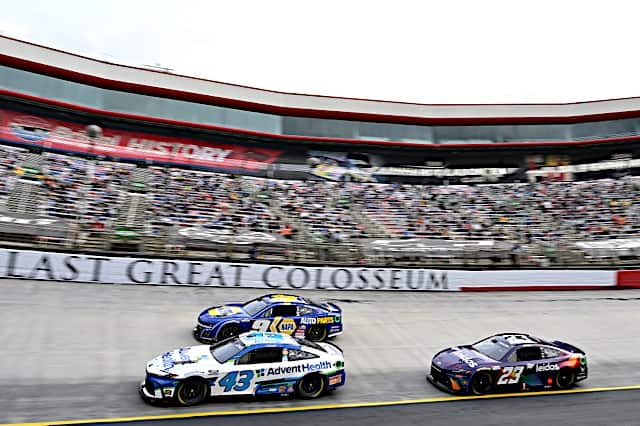The NASCAR Cup Series race last weekend at Bristol Motor Speedway highlighted one of the things wrong with the sport and one of the challenges that exists in contemporary society. The former is one tied to scientific inquiry. The latter pertains to the evolution of society and the almighty need to feed the machine.
To start, the announcers did no favor to the Bristol race when tire wear became an apparent issue. Treating the issue like it was tantamount to the downfall of NASCAR and covering the Goodyear personnel as they mounted tires in a way that posited that if they did not get the tires on the wheels fast enough the race, no, the sport, nay, the country might perish. The rhetoric and hyperbole are so bombastic that any sense of actual nuanced discussion gets lost in the fray.
But one of the things to recognize is that someone made an error in judgment. As the Goodyear VP in charge of tire management and ridiculous racing requests (job title assumed rather than known) appeared on the screen with 100 or so laps to go, probably surprised by his own need to be part of the narrative of the race, he did his best to lay out the details. The one that stood out is that Goodyear had tested their tires with the PJ-whatever compound, but that NASCAR decided that resin was the track adhesive they would use.
Seems smart. Why use the track compound that had been the norm and one of the constants in the tire wear equation when we can solve for a new X and use the race as an experiment? No one will notice and certainly no one will see their racecars torn up as a result.
This error in judgment has more to do with the hubris of the organizing body than it has to do with anything that Goodyear did wrong. In the spirit of, um, confused engineering (?), anti-science ideology (?) or possibly redneck ingenuity (?), the sanctioning body determined that ignoring whatever information it previously had was the way to go. If there is one thing that continues to amaze about sports, it’s how wealthy, smart people make baffling decisions. As a professor of mine used to opine, if sports ran like any other business, it would be out of business.
What turned out to be a bit of snafu that encouraged the high melodrama of a Korean soap opera actually turned out to be a pretty solid race. Stephen Stumpfʻs piece detailing the race provides a solid way of thinking about how the narrative given during the time of the event is not indicative of the way the race…
Click Here to Read the Full Original Article at …

